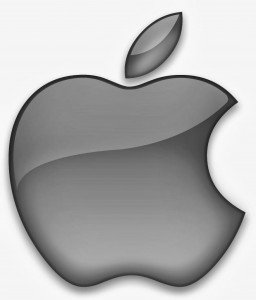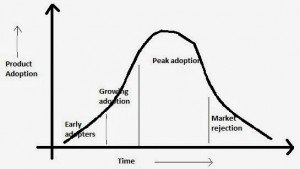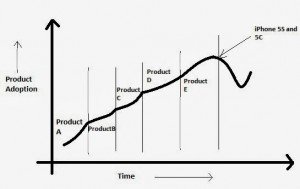Any tech geek must be asking himself the same question over the last four weeks- Where is Apple heading? The much anticipated September 10th Apple event did not quite meet the expectations of analysts and Apple fans the world over. After all, what did Apple really launch? iOS7, an overpriced iPhone 5S and a plastic phone iPhone 5C (did ‘C’ in its name imply cheap? Does not quite seem so by the price tag). iOS 7 has a new look interface, but in the age of customizable android, is it really worth the price? A plastic body for a premium Apple product? You must be kidding!

On one hand, Apple says it wishes to target the emerging market economies like India by opening stores in rural part of the country – But does it really feel it can tap the price sensitive smart phone market in India with an INR 20K+ price tag? Local Indian companies like Micromax and Karbonn have been selling android powered phones even in the under INR 4k market in the country. Can Apple compete in such a market? Is it not looking like a case of “lost for strategy” ?
The comparisons between Steve Jobs and Tim Cook at this point of time is inevitable, in fact the question that comes to my mind- would Jobs have launched a plastic iPhone? Should Tim Cook be the person singled out for the lack of innovation in the post- Jobs era? I do not quite feel so.
Much of the reason for Apple’s success in the Jobs era was also due to supply chain and logistics genius of the current CEO. In fact based on a report on AllthingsD, the planning for the logistics for Apple devices begins several months in advance in an extremely secretive manner right from the factories in China to the outlets all over the world.
However, let us now get to the facts. Apple has not really launched anything extraordinary in the last several years. Its products are really great; in fact they have either created new product categories or redefined them entirely. In my view, Apple computers would always be remembered for the following three contributions: redefining personal computers (or even creating them) in 1984 with the launch of Macintosh, changing the landscape of the music industry by its trend breaking music device ipod and itunes as a platform and redesigning or rather reinventing the phone. But can past success be enough to ensure a sustainable future?
If the history of tech companies are anything to go by, it does not seem likely. Take the case of Palm or Motorolla or Nokia or Blackberry, all of which were market leaders at one point of time. But where are they now heading? Either getting closed and being sold in parts or getting acquired. Reality is, if you are not innovating, sooner rather than later you will become history. Blackberry stopped innovating because they believed business users will always stick with them. Nokia failed to adopt android and persisted with Symbian because it felt why should it need to change? Apple seems to be entering the same trap.
If we consider the share of Apple in smart phone market, it is just 14% far less than the whopping 80% that android OS commands in the market. One can argue, the iPhones are far higher in value and hence commands a lower share. One can also say, Apple commands a lion’s share in the US market. But can you ignore markets like India and China in the long run? Put it simply, can you ignore half of the world’s population and still expect to be the world’s most valuable technology company ?
The sales of the latest iphone5s and iphone5c have been anything but great and the stock price is also down by about 4% to where it was a month back. The euphoric mad rush about the gold plated iPhone 5S has also now apparently ended which was largely caused by those who were looking at renewing their cell phone contracts. There are talks of a new ipad being launched and the much awaited i-watch is also on the cards. However, here again Samsung seems to have stolen the thunder with its launch of Note3 tablet and the smart watch.
If we look at the strategy that Apple follows, it can be plotted on the product life cycle curve as a staggered one. The difference in its strategy will be more evident if we can compare it with another product. Let us consider a normal life cycle curve; say a Hyundai car, the curve will look like this:
It will consist of four phases in the lifecycle of the product: the early adoption, the growth in adoption followed by a peak adoption before being rejected by the market in lieu of a better product. In case of apple, however, the strategy followed by it makes its lifecycle curve far more unique and different.
The lifecycle curve for apple will look like this:
Each time it launches a product, there is a euphoria associated with it which makes people wait outside its stores. However once the sales pick up, it announces the possible launch of a better product in near future at a higher price and killing off the earlier product.
Considering the graph above, each of the products A, B ,C and D have individual lifecycles similar to the one for the Hyundai car that we have mentioned earlier. However in case of apple, it has got shortened to give each of its products an early start by continuing it from where the previous product ended. The result: its products are still in a growth phase, despite the first i-phone being launched as early as 2007 and the first ipod in 2001. Moreover, this strategy also enables it to command a premium pricing for its new launches as it incorporates certain value additions to the already selling model in the market.
This strategy works good as long as you can keep improving your existing product and have a significant R&D budget to allocate. Apple has the resources to invest in R&D, but this is where the source of Apple’s present problems begin!
In my view, i-Phone has reached a point whereby further improvements would be miniscule from now onwards. Hence, sales are only going to dip! Either Apple should introduce a radically different product or take a step so radically different that its competitors could not have anticipated such as making iOS open-source. I mean considering its iOS 7 looks like android inspired, can’t Apple offer the consumers a chance to redesign their OS as they wish to?
Making it open-source looks unlikely in near future if we consider the secret nature of how Apple likes to function. But if Blackberry can start making BBM for android, there is no reason why such an eventuality should be ruled out.
What happens if iOS becomes open source? Will Samsung shift to iOS or will it continue its rivalry with Apple to become the premium mobile phone manufacturer? How will the market react to such a possibility? How will an upcoming tech giant like Xiaomi react ? These are questions which are incredibly difficult to answer !
Apple die-hard fans may disagree with this. I, however, believe such a possibility is already taking shape.
In short, whatever Apple does there can be no denying that it is one of the greatest companies ever to have been created. Let’s hope it does not become a thing of the past. Will the much awaited i-Watch change the course for Apple ?



































